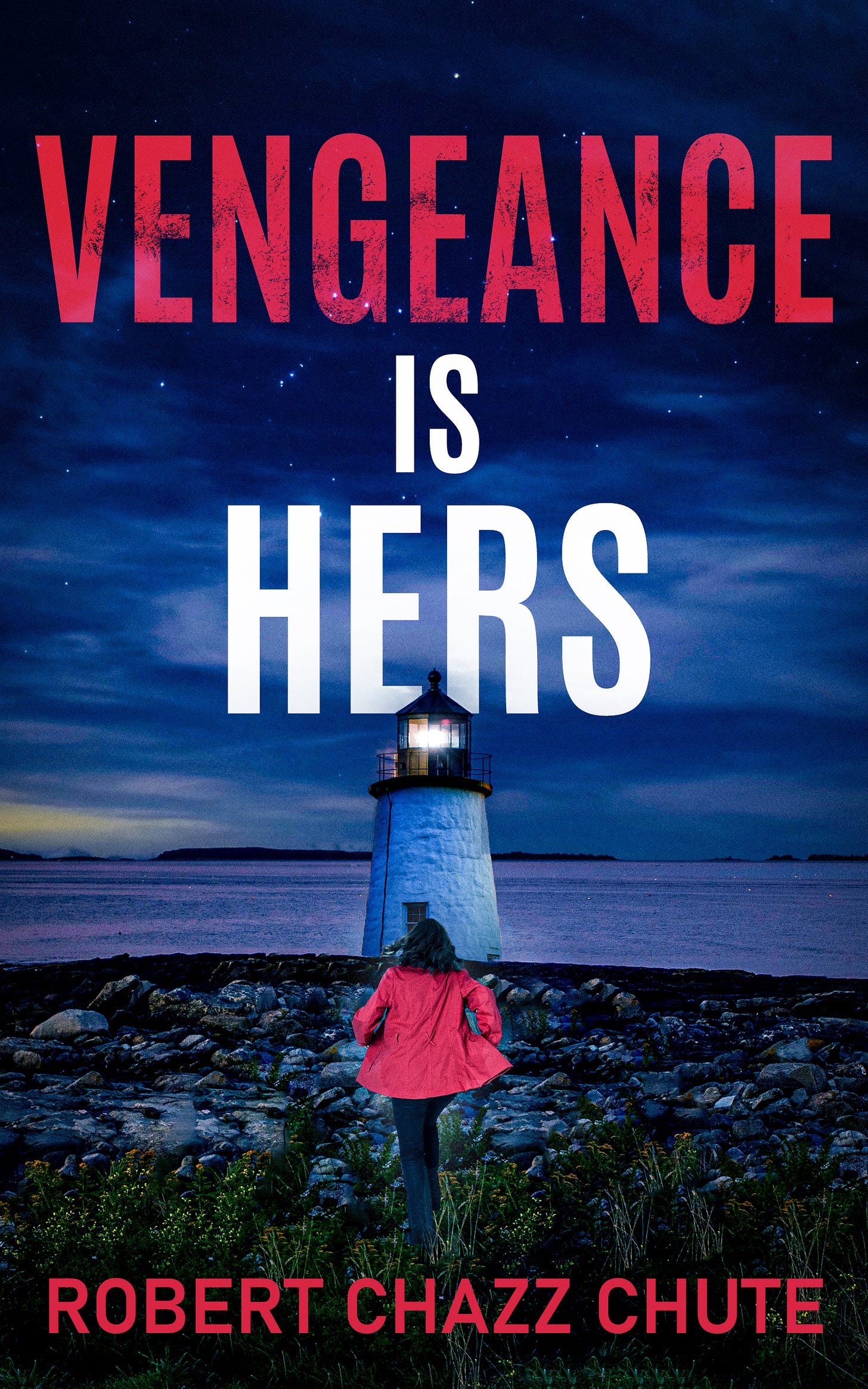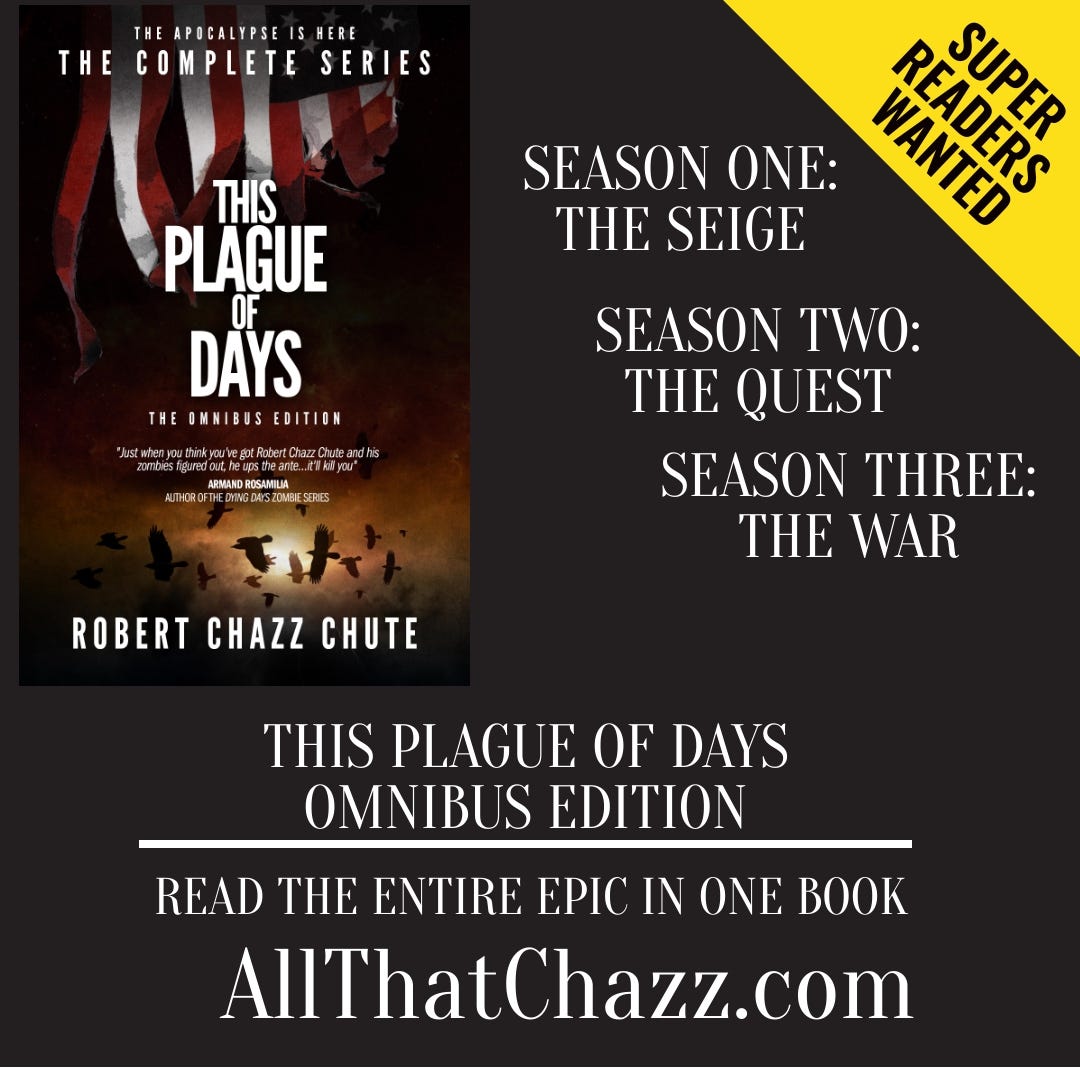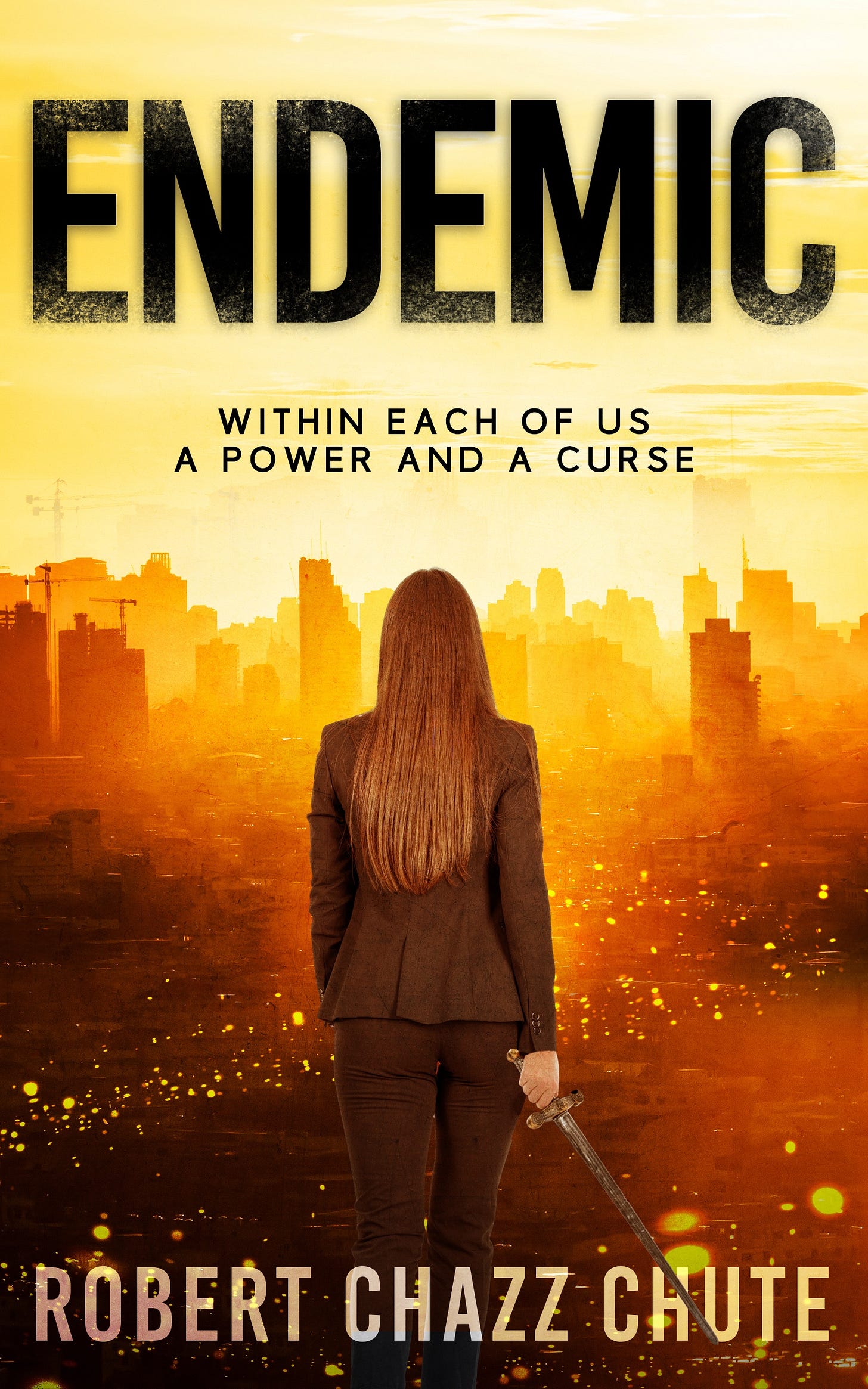Is Publishing Too Homogeneous?
Creatively, I'm rowing against the current, and I'm okay with that.
I talked to several literary agents about my newest novel. One was neutral, one was repulsive, and two were receptive. Ultimately, that exploration didn’t go anywhere, but one theme did emerge from that consultation: They all said the novel was too long.
At 114,000 words, Vengeance Is Hers is a thriller that begins with Molly Jergins in high school. The novel concludes twelve years later. The agents were concerned about marketability: Is this revenge story YA, new adult, or adult fiction? It didn’t fit easily in one box.
They weren’t wrong about that. Books are easier to sell if they fit into tidy boxes.
Going north of 90,000 words is not what many readers expect from a novel like this. Bigger books are expected with fantasy, but not crime thrillers. I get that. However, those conversations were exactly why I did not pursue agents further.
I had a story that demanded more length. It wouldn’t fit in a tidy box, but Molly was a messy heroine/anti-hero. At the midpoint of the novel, she suffers a great loss in her pursuit of justice, and, just like real people, it takes her time to get on with her life (or not get on with her life).
I wrote to the length my story demanded, not what would necessarily sell easily.
I’ve long thought that readers don’t know what they want until you give it to them. At a restaurant, we have preconceived notions of what lobster pasta is going to taste like, but diving into Vengeance Is Hers, part of the fun is that you don’t know what to expect, complications ensue, and you get the joy of discovering something that’s familiar, but still fresh and new.
The publishing industry follows trends.
Twelve publishers rejected Harry Potter before it became a worldwide phenomenon. Then, for the next fifteen years or so, we got a lot of wizard school novels, some of which felt to me like knock-offs.
Recently, another author observed that indie authors are doing different things with their narratives. They can dare to be bold because they don’t have the constraints of a big publisher’s marketing department.
I totally understand the pull between commerce and art.
I used to work in trad publishing, and I’ve been in those meetings where an editor presents a book and we had to figure out how to sell it. After my conversations with those agents, I’m left wondering, have some in the industry given up? Instead of saying, how do we sell this, are they just saying, “We can’t sell this. It’s too hard.”
Book marketing is hard.
Vengeance Is Hers is not flying off the shelves...yet. For this one, I decided to have a long and sustained marketing push, and I’m working on ways for the novel to find its audience.
Marketing gurus talk about branding and tropes, and they’re not wrong.
Awareness of market factors optimizes your chances of selling more books faster. But I wonder, if you conform too much, will you lose the creative spark? Will your creation be memorable, or just another novel in a sea of lookalikes?
I’m not writing knock-offs. I’m not an imitator. I’m rowing against the tide of homogeneity. I’ve done it before. My bestseller is This Plague of Days. A reductionist would say, “Oh, you wrote a zombie book!” No, This Plague of Days is a trilogy about a global disaster and good versus evil with a very unlikely protagonist. It doesn’t look or feel like other zombie books, and that’s why it was a success.
My goal here is not to shit on the business decisions of big publishing, and it’s not like it’s all bad.
Right now, I’m reading Tender is the Flesh, which is traditionally published but tells a very unconventional and compelling story. Another example is when Frank Herbert wrote Dune. That was not an easy sale to agents and editors. Twenty publishers rejected Dune, and the publisher who did buy it, Chilton Books, was mainly known for printing car manuals. Compared to other science fiction at the time, Dune was groundbreaking. Glad it worked out. Without Dune leading the way, we might not have Star Wars.
If you’ve ever dug a hole, you know breaking new ground is much harder than walking on the well-traveled sidewalk. My point here is to encourage other creatives to allow themselves slack in their creative leash. By not following the crowd, you risk selling fewer books than you would otherwise. Or maybe you’ll blow the doors off of readers’ expectations, and they’ll be delighted. I hope so.
In 2022, my dystopian novel, Endemic, won first place in genre from the North Street Book Prize. This morning, I found out Vengeance Is Hers is doing well with the North Street Book Prize judges. That’s very hopeful and gratifying. The novel doesn’t have many reviews, but one of them is a rave from Publishers Weekly. To say the least, I feel exonerated in my creative choices.
If you’re out to make more money quickly, sure, listen to the gurus, and you’ll have an easier road ahead. It will take me longer to find my readership, but when I’m at the keyboard, I’m not really thinking about how to sell it later. I’m just trying to write the best story I can. I can’t read your mind, so I’m entertaining myself first and hoping that, later, readers like me will board my crazy train.
Some debate the value of writing contests. To date, I’ve won fifteen of them, and each one has encouraged me to keep going, to keep believing in myself, and to remain hopeful that this novel, or the next, will be the one to break out of our algorithmic prisons in the attention economy. To be seen, to be understood, to reach new readers, and to entertain generations from my blanket fort.
This is not easy, but if it were, everyone would be doing it. I’ve always been more interested in exploring paths into the woods instead of sticking to the main highway. In the end, doing things my way, I hope to end up in the same place, with a huge and happy readership. We’ll see.




